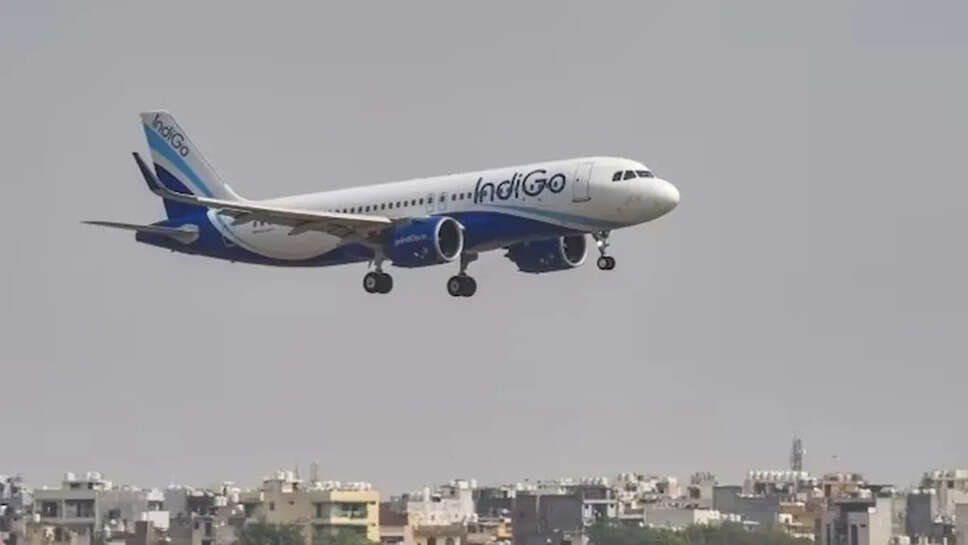IndiGo Plans Customized Products, Value Offerings for Evolving Indian Flyers

India’s largest airline by market share, IndiGo, is poised to undergo a significant transformation in its approach to service offerings, product design, and customer experience. Under the stewardship of CEO Pieter Elbers, the airline is aiming to redefine what “low-cost flying” means for Indian travelers—by focusing not only on affordability but also on flexibility, relevance, and value.
In a recent interaction, Elbers laid out a clear vision: IndiGo will offer “fit-for-purpose” products to meet the diverse needs of Indian flyers, all while maintaining its “value-for-money proposition.” This marks a shift from the conventional budget airline model, where frugality often comes at the expense of customer choice and comfort.
Let’s explore what this strategy means, how it aligns with broader trends in aviation, and what flyers can expect in the months and years to come.
Understanding the “Fit-for-Purpose” Model
The term “fit-for-purpose” in airline parlance refers to tailoring services and products according to the specific needs of travelers—be they budget-focused, comfort-driven, or business-oriented. For IndiGo, this means moving away from a one-size-fits-all strategy and creating layers of options that allow passengers to personalize their flying experience.
“We are evolving from being a carrier that only talks about low fares to one that offers relevant choices—whether that’s priority boarding, extra legroom, food options, or connectivity,” Elbers stated.
This shift doesn’t necessarily mean IndiGo will abandon its low-cost model. Instead, it seeks to enhance the value proposition by offering choice and modularity—where customers only pay for what they value.
Why the Shift? A Changing Indian Flyer
The Indian air traveler has changed drastically over the past decade. What was once a price-sensitive market dominated by first-time flyers is now more diverse—with frequent business travelers, millennials seeking convenience, and families looking for seamless journeys.
Elbers acknowledges this evolution: “The expectations of the Indian consumer have shifted. They are still looking for affordability but also for predictability, comfort, and options.”
This changing consumer profile is exactly what is driving IndiGo’s efforts to roll out differentiated services. By offering product bundles and service add-ons, the airline hopes to cater to both budget-conscious and value-seeking segments—without compromising operational efficiency.
Value-for-Money, Not Just Low Cost
At the heart of Elbers’ strategy is the idea of value rather than just low price. In the current aviation market—especially post-pandemic—customers are more aware of what they get for their money. A cheap ticket isn’t enough; passengers expect reliable service, on-time performance, and basic comfort.
IndiGo, which has long been praised for its punctuality, aims to build on this strength. “We want customers to feel they are getting more than what they paid for,” says Elbers.
This includes improved communication, digital touchpoints, better boarding processes, and even subtle enhancements in in-flight experience—all while keeping operational costs lean.
Product Customization in the Pipeline
Though IndiGo has traditionally maintained a single-class cabin and limited in-flight services to control costs, that too may see nuanced upgrades under the new vision.
Some likely developments include:
-
Fare families: Passengers can choose from different pricing tiers based on what’s included—baggage, meals, seat selection, etc.
-
Premium add-ons: More “6E Prime”-style options for priority services, lounge access, and flexibility.
-
Business-lite products: While IndiGo has avoided business class, it may offer enhanced seating or convenience for high-value customers without adopting a full-service model.
Elbers hinted that product innovation will remain within the low-cost framework but with smarter segmentation.
Fleet Expansion with Purpose
IndiGo’s ambitious fleet expansion is aligned with this service transformation. With hundreds of aircraft on order—including A321XLRs that can fly longer distances—the airline plans to deepen its international footprint. But even here, the “fit-for-purpose” philosophy applies.
“These aircraft give us the range to offer new routes—from deeper Europe to East Asia—without compromising on unit economics,” Elbers explained.
On these longer sectors, product differentiation becomes even more critical. Flyers may see more food options, entertainment add-ons, and comfort packages tailored to flight duration and passenger profile.
Going Beyond the Ticket: Holistic Travel Offerings
Another key pillar of IndiGo’s future lies in end-to-end travel solutions. Beyond just selling tickets, the airline wants to help travelers with hotels, cabs, insurance, and even holiday planning—essentially becoming a one-stop travel ecosystem.
By using its app and website as a platform, IndiGo could leverage customer data to offer relevant add-ons before, during, and after a flight. This ecosystem approach is increasingly common among global carriers and fits well with the digital-savvy Indian traveler.
Operational Excellence Still the Backbone
Even as IndiGo evolves its customer-facing strategy, it’s not losing sight of the fundamentals. Elbers stressed that the airline’s core DNA—simplicity, efficiency, and reliability—remains unchanged.
-
Punctuality will remain a non-negotiable.
-
Turnaround times will be tightly managed.
-
Cost leadership will underpin every initiative.
In other words, the “fit-for-purpose” model is not about luxury or excess—but about precision, relevance, and thoughtful design.
Facing the Competition
India’s aviation market is becoming increasingly competitive, with Air India’s resurgence, Akasa Air’s rise, and SpiceJet’s return strategies. But Elbers sees this as healthy.
“Competition keeps us sharp,” he says. “Our focus remains on consistency, scale, and smart innovation.”
With over 60% domestic market share and expanding international routes, IndiGo is well-positioned. But the new offerings are not just about defending turf—they’re about building customer loyalty in a fragmented market.
The Global CEO Lens
Elbers brings with him deep international experience from his years at KLM, where he helped the airline embrace modernization without losing identity. At IndiGo, he’s applying a similar lens: find ways to grow without diluting what works.
“You don’t have to be a full-service airline to offer full-service thinking,” he remarks.
This hybrid approach—combining low-cost discipline with tailored value—could become the model that other emerging market carriers emulate.
A New Chapter for IndiGo
As IndiGo prepares for a more diversified market and ambitious expansion, its CEO’s message is clear: the future lies in relevance, not just scale. With “fit-for-purpose” products and a commitment to value, the airline hopes to deepen its bond with flyers, not just sell tickets.
For Indian travelers, this could mean more choices, better experiences, and a sense that even in the no-frills segment, you don’t have to settle for less.
